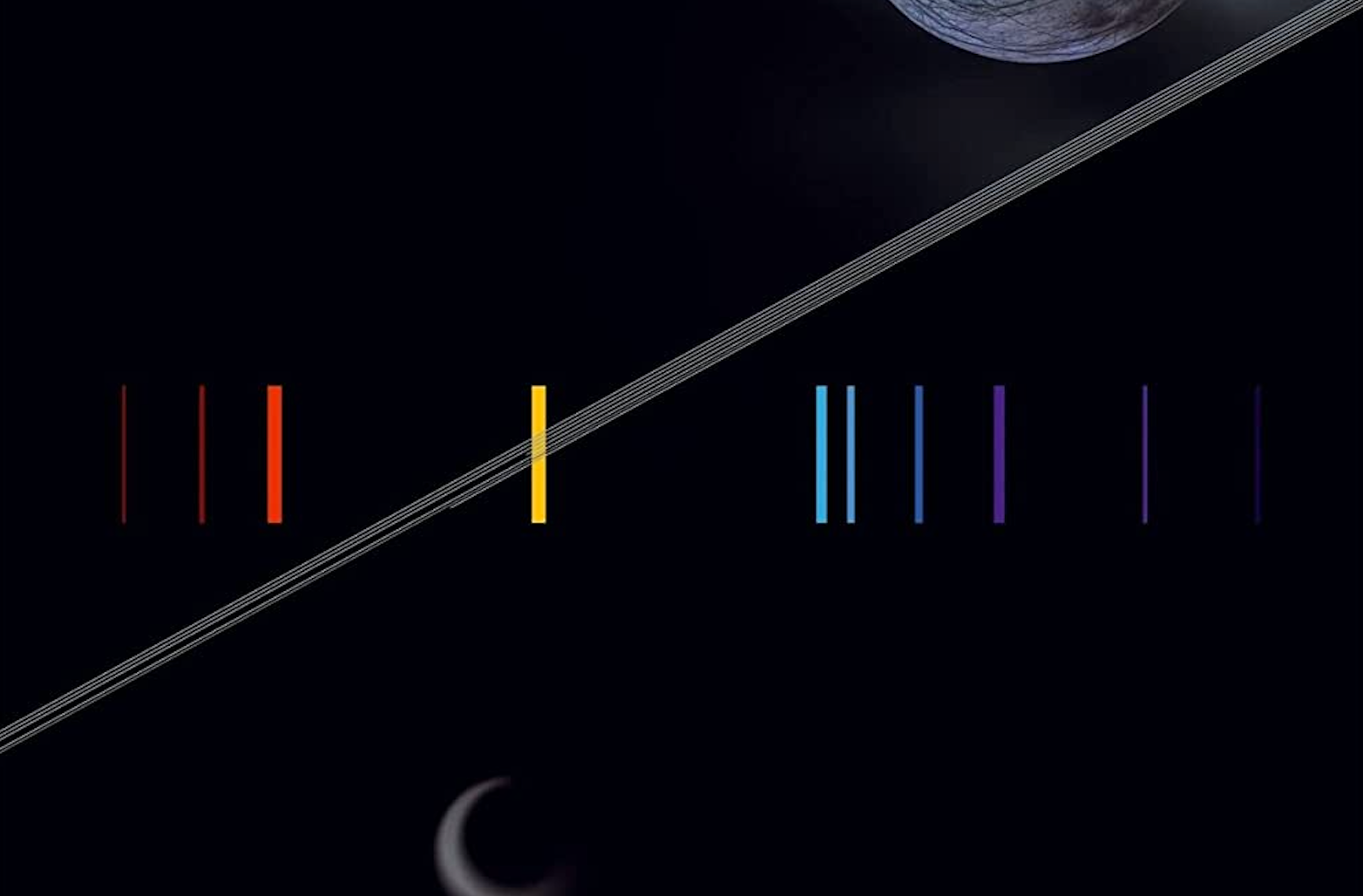Postcards from the end of the world

After a bit of an extended hiatus, I've decided to fire up the old newsletter to write about everyone's favorite topic: generative AI. Now, far be it from me to position myself as an authority on a topic that many, many others are more well-equipped to discuss, but when has that ever stopped me before. (If you're looking for some of the best writing on said topic, Sam McPheeters' Reality Breakdown is quite good).
Lately, at work, I've been joking about how in six months I'll be fired and replaced by ChatGPT. Every week, that seems less like a joke and more like a preemptive callout of my bosses. Regularly, I hear more coworkers talking about ChatGPT, and my company fields more emails from start-ups pitching the latest, greatest version of AI to make people who type words into Google Docs obsolete. Of course, it's not just folks like me, who find ways to turn witty little words into a thing that people will give me money for, but it's happenings to artists, designers, video editors, voiceover artists, and now, with the launch of Google's MusicLM, musicians. Things that were one specialized skills are becoming all but replaced to create more capital for businesses that, after years of record profits due to price gouging, are now trying to push toward the idea of infinite scale by eliminating vast swaths of the workforce. Like every decision I've seen made in my career in media—and then outside of it, too—every CEO is willing to forgo long-term stability for short-term gains, because that's how they make it work for them. Not for anyone else.
In the next decade, what we'll see is the establishment of, exclusively, an upper-management class in all corporate settings and mass underemployment, if not outright unemployment, for the rest. While many people are quick to view AI as "just a tool" and extoll it's many benefits—unfortunately, this has proven true of some people I otherwise like and respect—if you zoom out even a little bit, it's clear that giving upper-management the ability to eliminate large swaths of the workforce and create exactly what they want, with zero pushback, at a moment's notice, will contribute all the more to the ever-widening class disparity throughout America. It's also a great way to continue to exacerbate the student loan debt crisis by ensuring only a precious few will be able to work in the fields they just spent $100,000 trying to buy their way into.
Given that most corporate jobs exist solely to proverbially shuffle papers around, it's only a matter of time before even the most high-paid, semi-specialized tracks that have been viewed as essential and untouchable (hello, my friends who work in data science and analytics) are lopped off and there's nowhere else to go. For the moment, plenty of people are content to turn a blind eye to it, hoping they will be one of the lucky ones that comes out the other side of it and finds themselves in the leadership position, talking back and forth to different chatbots all day, every day. I think that's wishful thinking. To assume corporations are benevolent, or that you'll be the one on the other side of capitalism's thresher, is the kind of optimism that I've never been able to muster.
Beyond the heavy ramifications outlined above, those that will look to art for escapism and reprieve will likely be met with a tidal wave of content that they feel like they've already seen before. As I see day in and day out, companies are increasingly concerned with data and testing, most of which is outsourced, and in turn creates a kind of flattening effect. Everything will be targeted to the generic every-person. Things that fall outside of these safe parameters will be deemed too weird or too niche. This story from The Hollywood Reporter more or less confirms that's already true at Amazon, as the streaming giant seems to only green-light shows and movies that look exactly like the other shows and movies they've already produced.
For years, I long assumed the final frontier with music would be when Spotify decided to monopolize music by essentially functioning as a label in the same way Netflix, Hulu, and Amazon have become studios. In essence, they'd pay artists to make records at abysmally low rates and then get to rake in all the profits on the streaming revenue. I like to call this the Victory Records model, and it's that adoption of it that has led to the current writers strike (solidarity forever, as they say). Ultimately, this was naive, because the clear end goal was just that they'd create fake artists and let the algorithm do all the work. It's never been about quality, it's been about content. Content. What a disgusting word. But take it from me, someone who hears the word bandied about constantly, this is all any of this has ever been to those calling the shots.
In the goal of maximizing short-term growth and scaling businesses to infinity, these companies will eventually bring about their own demise. I used to say it all the time at The Onion and The A.V. Club, but not everything is for everyone. In the long-term, I think there's a huge benefit to learning what the ceiling is and working within it. Instead of asking, "How do we capture the person who doesn't give a shit about what we do?" I think the better question is, "How do we better serve the people who like this and want this to exist?" I guess this is one of many reasons why I've never been a CEO.
Anyway, the funniest part of all this is that, as mass job instability takes hold, no one will actually be able to buy any of these products these cutthroat, profit-focused businesses are selling. But at least they were able to make a few more millions before the riots start.
What I've been listening to lately: Dødheimsgard, Black Medium Current
Speaking of weird, creative albums that I don't think an AI could make, I've been obsessed with Dødheimsgard's newest album. For the longest time, I said I only really cared about the band's first two releases—the more traditionally black metal-sounding ones—but I decided, on a lark, to give Black Medium Current a try after seeing so many rave reviews online. I'm very glad I did.
Well, actually, on that first listen I hated it. At 70 minutes and only 9 tracks, this thing was a bit of a behemoth, and the songs changed pretty wildly from part to part. That first listen, I'd go from digging one section to absolutely hating the next one and questioning why anyone would make such an absurd choice. But I get it now. Mostly, at least. At times, it sounds a bit like Oranssi Pazuzu mixed with Depeche Mode, making for a pretty expansive, free-form, electronic take on black metal that really doesn't sound like anything else I can really put my finger on.
After picking up a physical copy of the record, that appreciation has only grown, as bandleader Yusaf "Vicotnik" Parvez liner notes add a bit more weight to the proceedings. Following a dedication to his family, and what feels like a pointed acknowledgement of both his Indian and Norwegian heritage, the final words printed on the insert are, "This album is for the dead." This additional context only makes Black Medium Current a more expansive, emotional journey, and I am happy to have found a deeper appreciation for it with each listen.
Classic pick from the shelf: blink-182, Dude Ranch
Like so many other people, I went to the blink-182 show and had a very nice time. Though, at the outset, I expected that to not be the case.
I hadn't seen the band since 2002 and, though I was a big fan then, a couple factors pushed me away from the band. The first was your traditional pathway of becoming "too punk" for their more pop-oriented style but, also, because the friend who I'd always go see them with died. That loss is one that made revisiting those records, much less the idea of going to see them live, feel a lot more lonely than joyous. The thought of standing there and watching blink-182 and not having Matt next to me was one that felt too heavy for me to grapple with, so I never did it again. It was easier to ignore those feelings and the band we shared as kids than fully wrestle with the emotional weight of losing your best friend to suicide at age 12.
While it didn't immediately hit me at the show, eventually it did—though it wasn't in the way I expected. Sure, "Adam's Song" carried a good bit of weight for obvious reasons, but I think seeing these 50-year-old friends playing songs together and goofing off on stage is what really made me get choked up. Those are the things I miss most, and getting to feel like I was tapping back into that friendship in a crowd of 20,000 people just felt right.
As a result, I've been running back the blink-182 discography and finding a lot of joy in sitting with these records without the cloud of loss hanging over them. Maybe that will come back, who am I to really say, but for the moment, it's nice to commune with the past and feel appreciation for where I landed on the other side of it all.
At present, there are many asylum seekers in need of support in Chicago. If you have the means to donate to any of these organizations that are working to keep people warm, fed, and relatively safe, I encourage you to do so. Take care of each other. We're all we've got.

